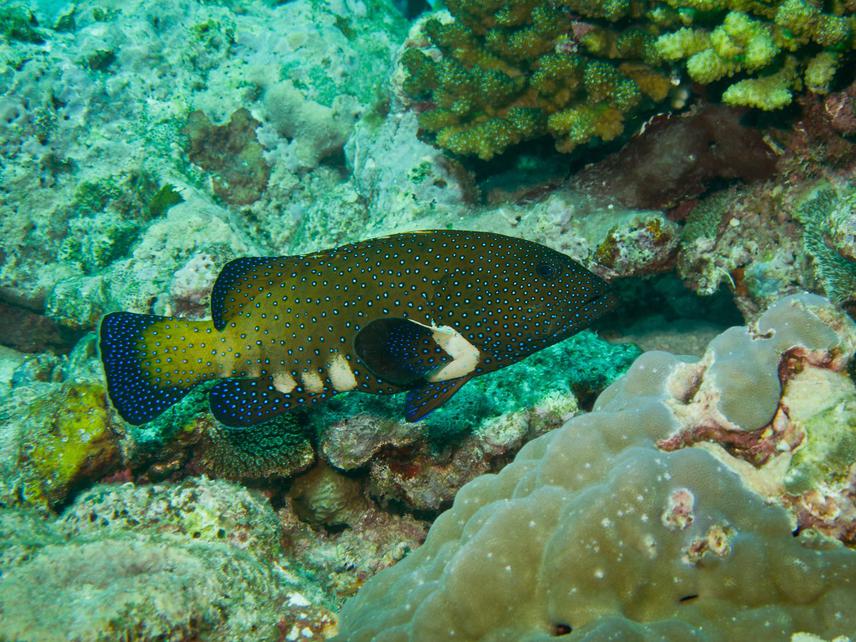Rucha Karkarey
Other projects
19 Nov 2010
Assessing the Effects of Mass Coral Bleaching on an Apex Predator Guild (Groupers) of the Lakshadweep Islands
3 Feb 2015
Coping Mechanisms and the Vulnerability of a Keystone Reef Predator (Peacock Hind, Cephalopholis argus) to Climate-Change in Lakshadweep.
12 Dec 2016
The Status and Growth of a Coral Reef Fishery Targeting Groupers (Epinephelids) in the Lakshadweep Archipelago, India
Our study will identify high priority areas for grouper conservation in the Lakshadweep, and determine the ecological, environmental and anthropogenic factors differentiating them. We propose to assess grouper functional roles in regulating reef-ecosystem processes, to determine what their loss could signify for the overall resilience of the archipelago. Our study will make preliminary attempts to document current fishing and traditional reef-management practices in the archipelago against the upswing of a commercial reef fishery.

The highly adaptible peacock grouper. © Jordi Pages
Our previous Rufford-project assessed the importance of benthic reef-structure for sustaining grouper populations on coral reefs in Lakshadweep. The work indicates that reefs with very stable coral structure (sites which incur least physical damage from climate-change events; storms, mass-bleaching etc.) support high biomass of benthic top predators (groupers)-identified as potential ‘natural refuge areas’ for groupers from climate-change catastrophes within atolls.
Groupers are heavily fished across the Indo-pacific and fetch very high market prices in south–east Asia. In Lakshadweep however, the pelagic tuna fishery has so far contributed considerably to the overall resilience of these reefs, by reducing fishing pressure on functionally important reef fishes. However, reef-fishing practices in Lakshadweep are fast changing from this sustainable offshore pole-and-line tuna fishery to a target-fish driven commercial reef fishery. Together with the increasing frequency of climate-change disturbance, grouper populations in Lakshadweep, therefore face significant challenges. The decline of these functions can have major consequences for the coral reef ecosystem, triggering potential trophic cascades, with flow-on effects for reef-dependent island communities.
Our proposed work will contribute to an understanding of pressures that top benthic predators (groupers) face from climate-change related disturbances, and rising reef fishing pressures in Lakshadweep and its consequences for the entire ecosystem. It will help prioritize sites for grouper conservation and document vanishing traditions of community reef management that can be used in revitalizing local institutions of control in these islands.